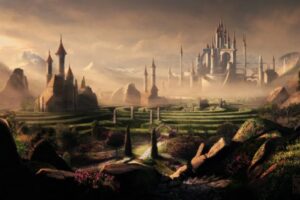FICTION IN ENGLISH LITERATURE- Categories Of Fiction
Fiction in English Literature encompasses a wide range of genres and subgenres, each with its own unique characteristics, themes, and storytelling conventions. Here are some common types of fiction:
Novel: Novels are long-form fictional narratives in English Literature typically exceeding 50,000 words. Novels can span various genres, including romance, mystery, science fiction, fantasy, historical fiction, and more.
Short Story: Short stories are brief fictional narratives that focus on a single incident, character, or theme. Furthermore, They are typically shorter in length than novels. It aims to evoke a specific mood or emotion within a limited space.
Fantasy: Fantasy in English fiction features magical or supernatural elements, mythical creatures, and imaginary worlds that diverge from reality. It often includes expressions of heroism, adventure, and the battle between good and evil.
Mystery: Mystery revolves around the investigation and resolution of a crime, typically a murder. Subgenres include cozy mysteries, police procedurals, and hard-boiled detective fiction.
Thriller: Additionally, Thriller focuses on suspenseful and high-stakes narratives that keep readers on the edge of their seats. Thrillers often involve elements of danger, intrigue, and tension, with protagonists.
Romance: Romance centers on romantic relationships, love, and emotional connections between characters. It explores themes of attraction, intimacy, and personal growth.
Horror: Horror aims to evoke feelings of fear, terror, and unease in readers through supernatural elements, psychological suspense, and macabre themes. Moreover, it often features monsters, ghosts, and otherworldly creatures, as well as exploring the darker aspects of human nature.

FICTION IN ENGLISH LITERATURE- Major Works and Authors
Fiction in English literature boasts an extensive array of major novels and authors, spanning centuries and encompassing various genres and styles. Here’s a brief overview of some notable works and their authors:
WILLIAM SHAKESPEARE
Plays such as “Hamlet,” “Romeo and Juliet,” “Macbeth,” and “Othello” are some of the most influential works. Additionally, blending tragedy, comedy, and profound insights into human nature.
JANE AUSTEN
Known for novels like “Pride and Prejudice,” “Sense and Sensibility,” and “Emma,” Austen’s works offer keen social commentary, sharp wit, and memorable characters.
CHARLES DICKENS
Dickens wrote classics such as “Great Expectations,” “Oliver Twist,” “David Copperfield,” and “A Tale of Two Cities,” which vividly depict Victorian society, often with exploration of social injustice and redemption.
VIRGINIA WOOLF
Renowned for novels such as “Mrs. Dalloway,” “To the Lighthouse,” and “Orlando,” Woolf’s stream-of-consciousness style and exploration of modernist themes have had a profound influence on literature.
JAMES JOYCE
Joyce’s groundbreaking novel “Ulysses” is celebrated for its experimental narrative style and depth of literary allusions. “Dubliners” and “A Portrait of the Artist as a Young Man” are also significant works.
EMILY BRONTE
Brontë’s only novel, “Wuthering Heights,” is a Gothic masterpiece known for its dark romance, complex characters, and atmospheric setting on the Yorkshire moor.
MARY SHELLEY
Shelley’s “Frankenstein” is a pioneering work of science fiction, that examines themes of creation, ambition, and societal responsibility.
F. SCOTT FITZGERALD
Fitzgerald’s “The Great Gatsby” is a quintessential American novel. Additionally, it explores the Jazz Age and the American Dream with themes of wealth, love, and disillusionment.
These are just a few examples, and there are countless other significant works and authors in English literature, each contributing to its rich tapestry of storytelling and cultural heritage.
